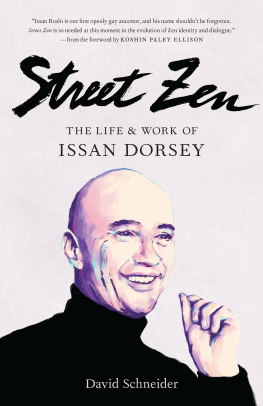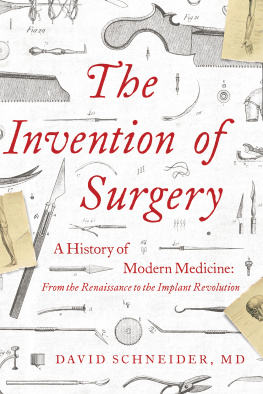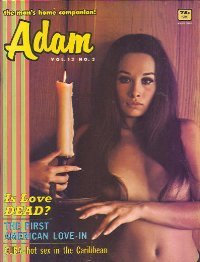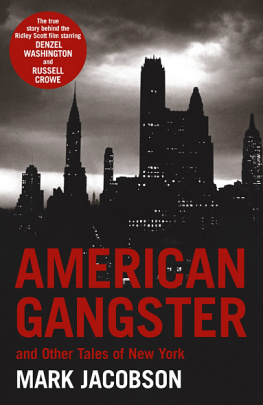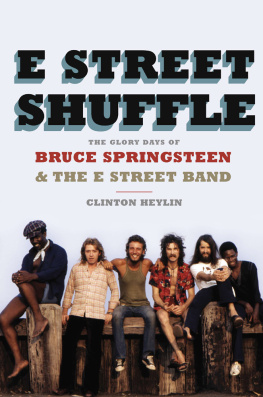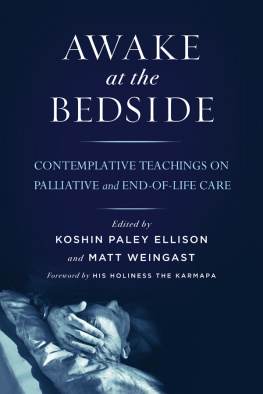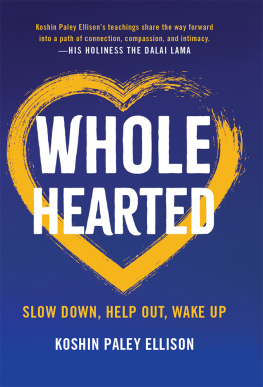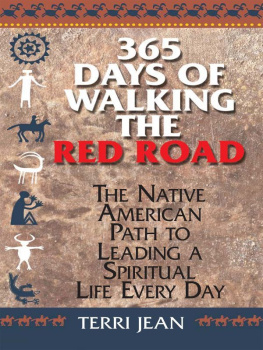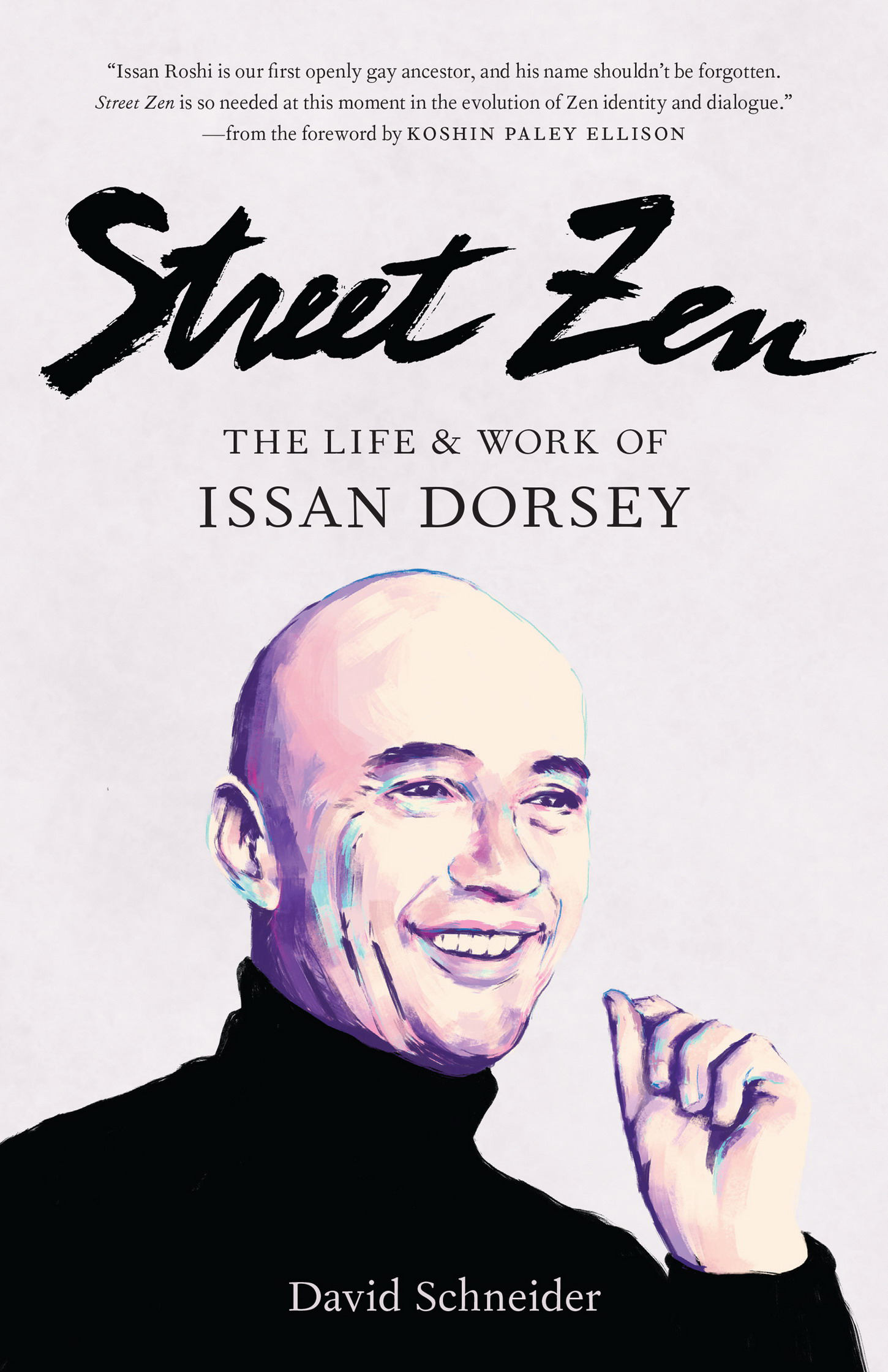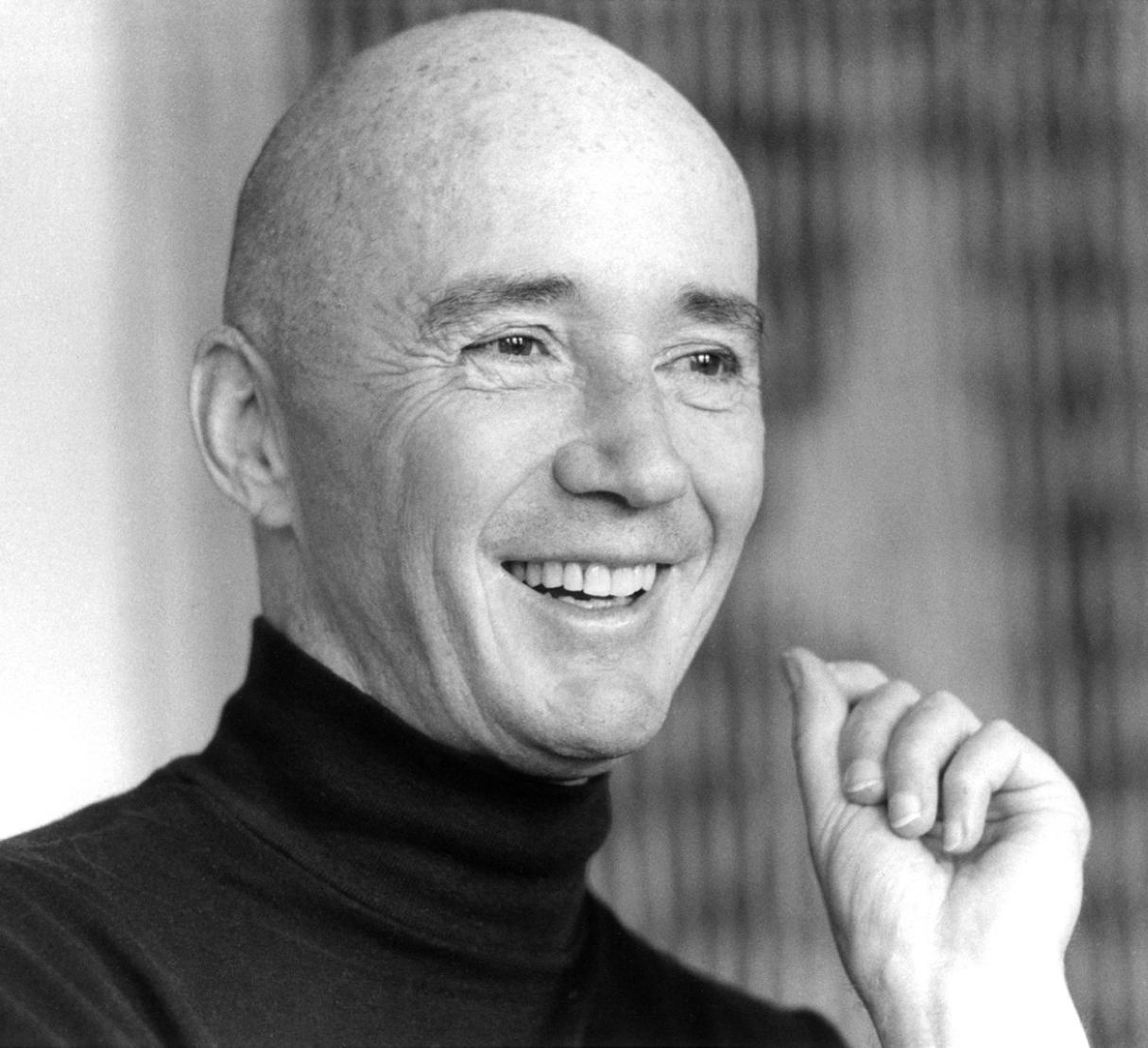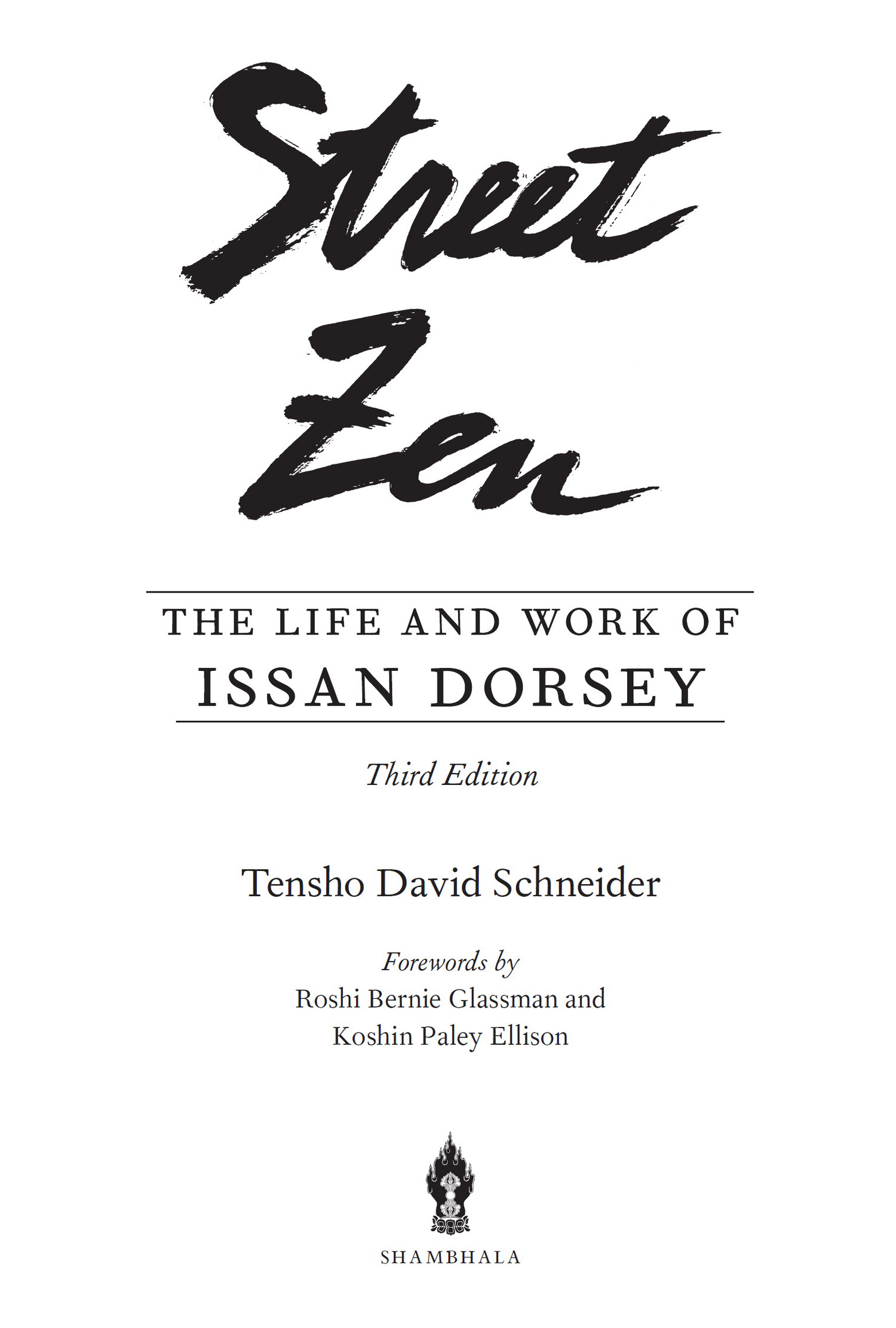Contents
Landmarks
Print Page List
Praise for Street Zen
Street Zen is about much more than the life of Issan Dorseyit is an exploration of how the material of our whole lives can be used as fuel for awakening. Issan teaches us that becoming a Bodhisattva means learning how to hold compassionate space for the process of becoming who we need to be in order to set others free. Bodhisattvas emanate to meet the needs of those of us lost in the sea of delusion. Issans life is a profound and timely expression for so many of us who do not see ourselves reflected in dharma communities.Lama Rod Owens, author of Love and Rage and coauthor of Radical Dharma
A fascinating book. I think Issans story contributes significantly to the history of the gay community and its response to AIDS, as well as to the history of Buddhism in America.Randy M. Shilts, author of And the Band Played On and Conduct Unbecoming
Well-researched, cleanly writtenIt details an amazing man and adds to our knowledge of gay history, Buddhist history, and AIDS activist history. [O]verall, Street Zen is a wonderful tribute to a unique and heroic individual.Lambda Book Report
Schneiderpresents an even-handed account of Dorseys extraordinary life and deathIt gives a clear handling of the paradox that was Dorsey and the great compassion that he embodied.Library Journal
A wonderful book I return to when I want to have my old roommate and dharma pal Tommy Issan Dorsey back again to remind me to slow down and enjoy life. Thanks to David Schneider for this soulful biography.David Chadwick, author of Crooked Cucumber: The Life and Zen Teaching of Shunryu Suzuki
Issan Dorsey correcting a point in the authors book proposal. You wrote that I only took a little acid. I took acid every day for a year!
Shambhala Publications, Inc.
4720 Walnut Street
Boulder, Colorado 80301
www.shambhala.com
1993, 2000 by David Schneider
Foreword copyright 1998, 2000 by Bernie Glassman
Foreword to the Third Edition copyright 2020 by Koshin Paley Ellison
This edition published 2020.
Cover art by Cris Latorre
Cover and interior design by Kate E. White
All rights reserved. No part of this book may be reproduced in any form or by any means, electronic or mechanical, including photocopying, recording, or by any information storage and retrieval system, without permission in writing from the publisher.
THE LIBRARY OF CONGRESS CATALOGING - IN - PUBLICATION DATA
Names: Schneider, David, 1951 author.
Title: Street Zen: the life and work of Issan Dorsey / Tensho David Schneider; forewords by Roshi Bernie Glassman and Koshin Paley Ellison.
Description: Third edition. | Boulder, Colorado:
Shambhala Publications, Inc., [2020]
Identifiers: LCCN 2019050843
ISBN 9780877739142 (first edition)
ISBN 9781569246375 (second edition)
ISBN 9781611808476 (third edition)
eISBN 9780834842991
Subjects: LCSH : Dorsey, Issan, 19331990. | Zen priestsUnited StatesBiography. | Gay menReligious lifeUnited States. | Gay menUnited StatesBiography.
Classification: LCC BQ950 . O77 S25 2020 | DDC 294.3/927092 [B]dc23
LC record available at https://lccn.loc.gov/2019050843
a_prh_5.5.0_c0_r0
Dedicated respectfully to
Shunryu Suzuki Roshi,
Tamer of Untameable Beings,
and to Mark Foster Ethridge
and Willie Snow Ethridge
Contents
Foreword to the Third Edition: Learning to Love Fully
My legacy
What will it be?
Flowers in spring,
The cuckoo in summer,
And the crimson maples
Of autumn
RYOKAN
It was my first date with Chodo, the gorgeous man who would later become my beloved husband and with whom Ive now been together for eighteen years. It was a Sunday afternoon in November 2001. We sat for hours on a bench in Father Demo Square in the West Village, New York City, drinking espressos and talking about Pedro Almdovar movies, past relationships, and his growing up in England and me in Syracuse, New York. What different lives we had on the surface; the first obvious connection was our love of Zen practice. He asked me what I was currently reading. Street Zen, I responded. No kidding! Me too, he said. Together on that bench we discovered something else we had in common: our dream to be of service to the aging, the sick, and the dying.
Both of us had experiences at the beginning of the AIDS crisisChodo as an activist with Act Up and manning a suicide hotline, and me helping my mother as she tended to friends who had become sick with the virus. She taught me how to simply be present to their illness and to the fear these men were living with. The AIDS crisis affected Chodo personally, as he contracted the virus in 1983. Thirty-six years later, he is still thriving.
Imagine, then, the two of us learning of this amazing man, Issan Dorsey, who, during the height of the AIDS pandemic, provided housing and care to men living with HIV/AIDS in San Francisco. He gave the dying a precious gift of respect and dignity in a time of overwhelming fear. We marveled at the beauty of him simply showing up and doing what was needed. Here was a man who could be both outrageous and imperfect while also being of service selflessly and without judgement. It is hard to convey how exciting it was to be talking together about the life of the first out gay Zen teacher. To this day, there are only a handful of us.
Sometime after Chodo and I had committed to being together, my Hungarian Jewish grandmother Mimi was moved into hospice. I had been one of her primary caretakers for the previous five years of her life. While she was in hospice, friends from the Zen community shared the responsibility of caregiving with mevisiting, bringing her favorite food, listening to her stories, giving her mani-pedis, and simply keeping her company. Mimi was eighty-seven, and most of her life, in Brooklyn, had taken place in an era when people usually died at home. The world has changed in so many ways, she would say. She was amazed that she had a gay grandson taking care of her with his partner. She used to make little comments like: Its so unusual. Its so wonderful. Im so lucky.
Until her last day in hospice, I slept in her room. One night she shouted at me to wake up. She was crying. I was bewildered. Im so sorry, she said, Im so sorry. I asked her, Why? I didnt know until this moment what it meant to love all of you. Still crying, she went on to explain that she never totally understood why I had become a Zen Buddhist monk, and she had questioned how it fit my Jewish identity. She said, I am so sorry that I did not love you fully. That Zen part of you scared me, and a little bit of my heart contracted from you. Now I understand to love someone is to love everything about themeven the parts that you dont understand. I learned what it is to be truly loved from Grandma Mimi that night. I learned what it means to truly love others.
It was Mimi who suggested that Chodo and I create what is now the New York Zen Center for Contemplative Care, which we did in 2007, twenty years after Issan opened Maitri Hospice. Our Zen center offers daily Zen practice, accredited training for chaplains, and education in contemplative care to medical professionals and laypeople. The core expression of what we do is provide an additional layer of support for people experiencing serious diagnoses and various illnesses, and during the active stages of dying. After the death we continue to support their loved ones as they move through the grieving process.

